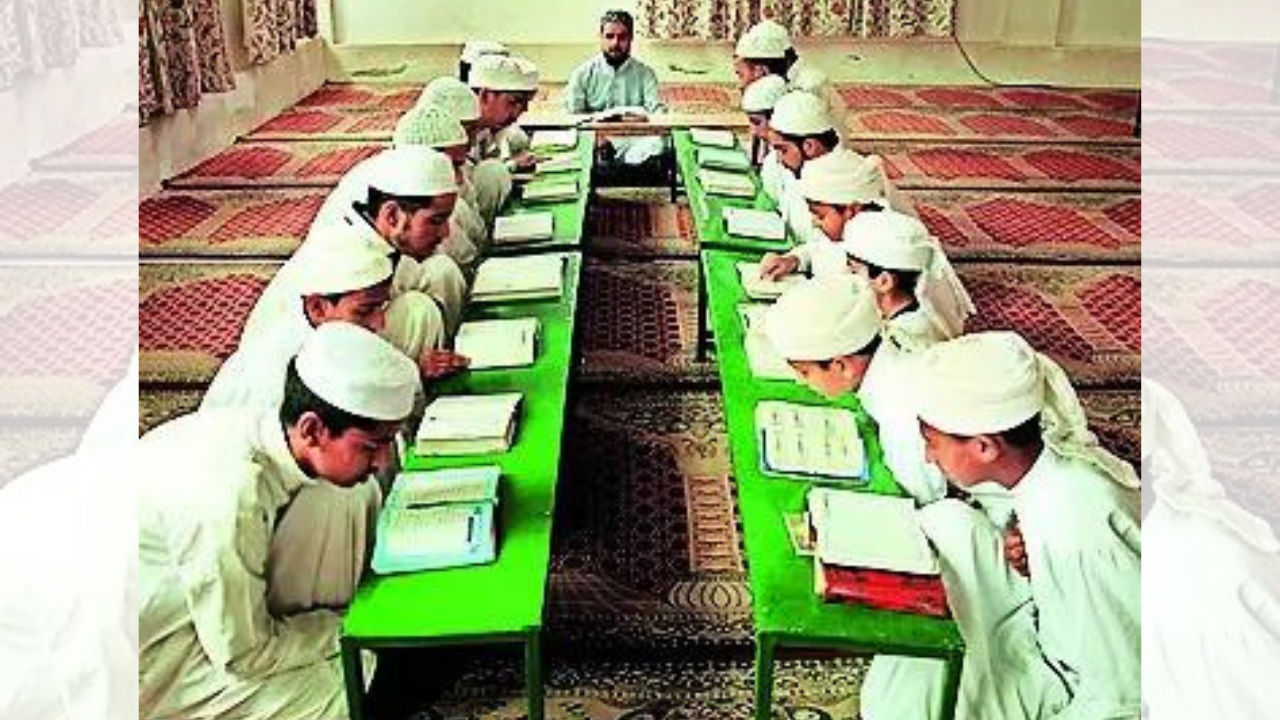LUCKNOW: The petitioner, whose plea against UP Board of Madrassa Education Act, 2004 was upheld by Allahabad high court on Friday, had argued that the Act fails to provide quality compulsory education up to the age of 14/Class-VIII, as mandated under Article 21-A. “Thus, it violates the fundamental rights of the students of madrassas.”
Meanwhile, reacting to the verdict, All India Muslim Personal Law Board member Maulana Khalid Rashid Farangi Mahali suggested that it be challenged in Supreme Court.
Besides questioning the constitutional legality of the madrassa board, petitioner Anshuman Singh Rathore objected to minority welfare department being given charge of all such institutes. UP’s madrassas used to function under the education department till 1995, when the baton changed. The Act facilitating the establishment of a madrassa board came nine years later.
The govt counsel contended that the state has the authority to permit such education. “Providing religious education and instructions is not barred or illegal. For such religious education, a separate board is required, with members of such particular religion,” he said.
Some madrassas and their employees’ organisations filed an intervention application against the petition. In addition to additional advocate general Anil Pratap Singh and amicus curiae Gaurav Mehrotra, several advocates presented their views on the subject to the bench.
The judges cited several Supreme Court orders while delivering the verdict. “The consistent law settled by Supreme Court is that higher education is a field reserved for the Union of India. Therefore, the state govt has no power to legislate in the said field.”
Meanwhile, reacting to the verdict, All India Muslim Personal Law Board member Maulana Khalid Rashid Farangi Mahali suggested that it be challenged in Supreme Court.
Besides questioning the constitutional legality of the madrassa board, petitioner Anshuman Singh Rathore objected to minority welfare department being given charge of all such institutes. UP’s madrassas used to function under the education department till 1995, when the baton changed. The Act facilitating the establishment of a madrassa board came nine years later.
The govt counsel contended that the state has the authority to permit such education. “Providing religious education and instructions is not barred or illegal. For such religious education, a separate board is required, with members of such particular religion,” he said.
Some madrassas and their employees’ organisations filed an intervention application against the petition. In addition to additional advocate general Anil Pratap Singh and amicus curiae Gaurav Mehrotra, several advocates presented their views on the subject to the bench.
The judges cited several Supreme Court orders while delivering the verdict. “The consistent law settled by Supreme Court is that higher education is a field reserved for the Union of India. Therefore, the state govt has no power to legislate in the said field.”
